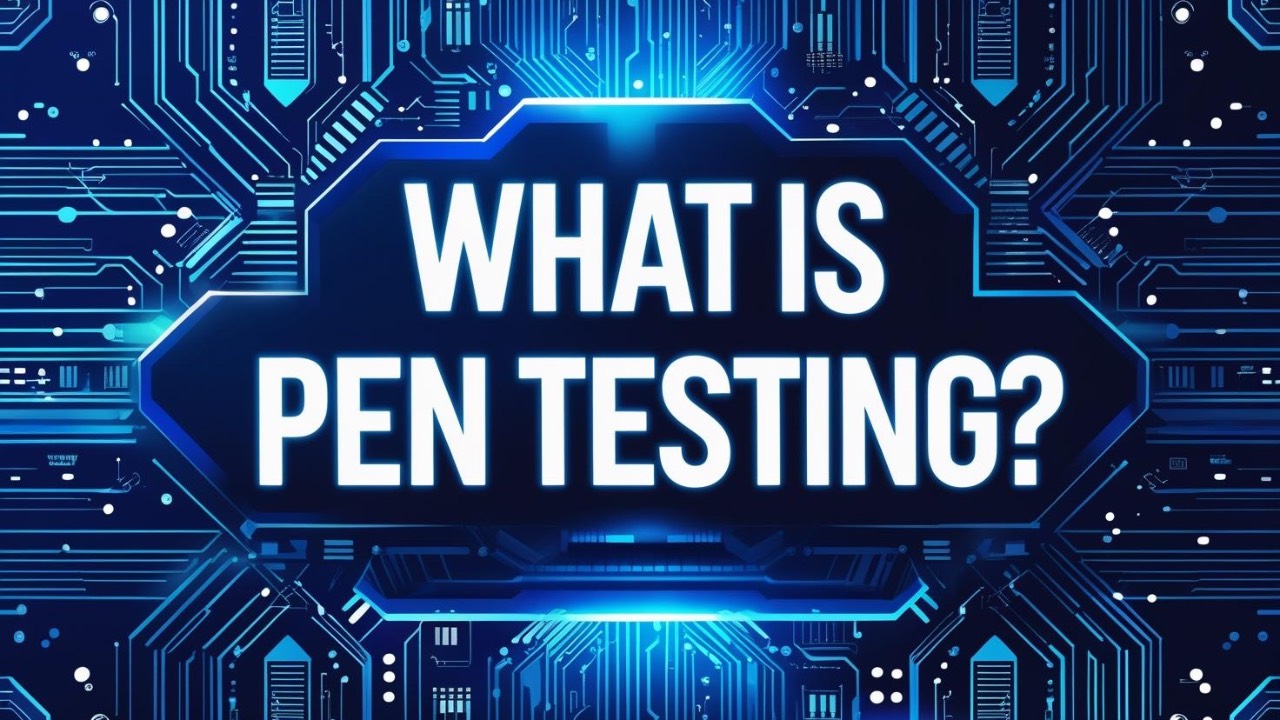What is Pen Testing and What Skills & Knowledge Do You Need?
Jun 10, 2025
What is Pen Testing and What Skills & Knowledge Do You Need?
Introduction
Cybersecurity is booming, and penetration testing (aka pen testing) is one of its most sought-after roles. According to the U.S. Bureau of Labor Statistics, employment for information security analysts is projected to grow 33% from 2023 to 2033, significantly outpacing the growth of most occupations. Pen testing often stands out as the preferred entry point for anyone eager to break into cybersecurity.
If you're new to the field, it helps to start with a strong understanding of what cybersecurity is and why it’s important.
What is Pen Testing?
Penetration testing is ethical hacking: you’re authorized to attack a system to uncover vulnerabilities and report them. You’ll often sign an NDA and work within defined scopes—for example, a specific web app or network segment.
The mindset? Think like a black hat hacker. Start with recon—gather as much information as possible. Public sources, exploit databases, network scans—even social engineering tactics like phishing emails—are fair game.
After the attack phase comes analysis and reporting: outline the weaknesses you found, propose fixes (such as applying patches, hardening configurations, or training staff), and contextualize the risks for the business.
What Types of Tests Are There?
- Black-box: zero prior knowledge—mimics an outsider’s attack.
- White-box: you receive full access—network diagrams, credentials, etc.
- Grey-box: partial disclosure—enough to get started, but not too much.
You can also read more about how pen testing fits into the broader red, blue, and purple team structure in cybersecurity.
What Skills & Qualifications Do You Need?
Pen testing is usually mid–senior level, not entry level. Employers want hands-on experience, credentials, and often a bachelor’s degree in computer science, cybersecurity, or a related field.
Experience often comes from roles like:
- Security analyst
- Systems or network administrator
Certifications can help bridge gaps:
- Certified Ethical Hacker (CEH)
- Offensive Security Certified Professional (OSCP)
- CompTIA PenTest+, CySA+, Security+
- GIAC GPEN, GXPN
Technical skills employers look for:
- Vulnerability assessment and remediation
- Coding and scripting: Python, Bash, PowerShell, Ruby, SQL
- Hands-on with tools: Nmap, Burp Suite, Metasploit, Wireshark, vulnerability scanners
- Strong understanding of network protocols, operating systems (Windows/Linux/macOS), and web infrastructure
- Knowledge of security standards—NIST, GDPR, PCI-DSS
- Reporting: clear, actionable write-ups for technical and executive stakeholders
Soft skills are equally vital:
- Clear, effective communication
- Attention to detail and persistence
- Ethical judgment and professional integrity
- Problem-solving and a continuous learning mindset
Final Thoughts
Penetration testing is a specialized, rewarding career in ethical hacking. You’ll attack and analyze systems—with permission—to help organizations stay safe. Tests can be black, grey, or white box, depending on how much prior knowledge you're given. To succeed, you’ll need a blend of experience, certifications, technical proficiency, and soft skills. It’s a challenging journey—but one that pays off.
Getting Ready to Take a CompTIA Exam?
Get a FREE cheat sheet that will walk you through the 5 most common mistakes people make when taking a CompTIA exam and how to avoid them.
We hate SPAM. We will never sell your information, for any reason.
